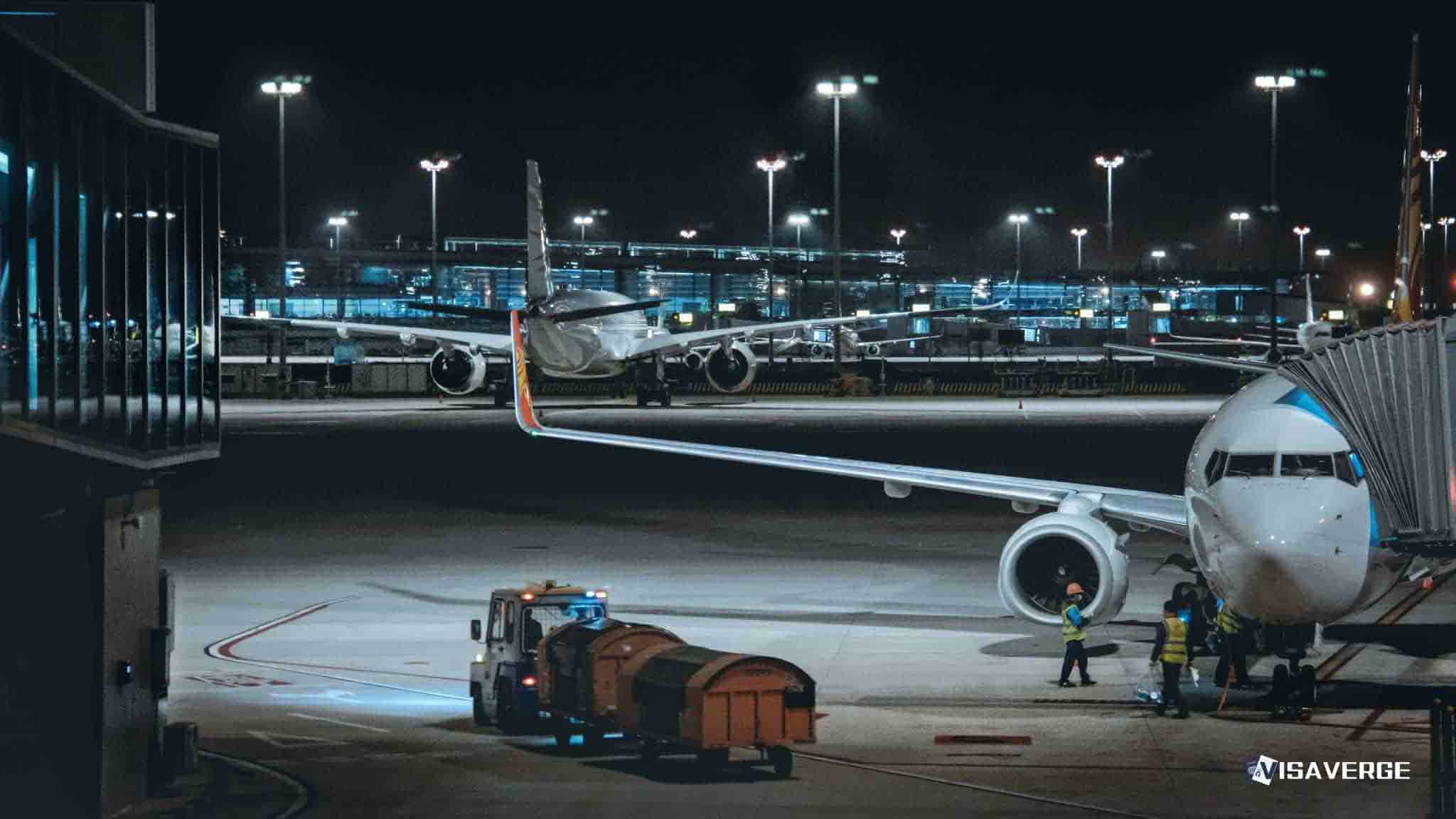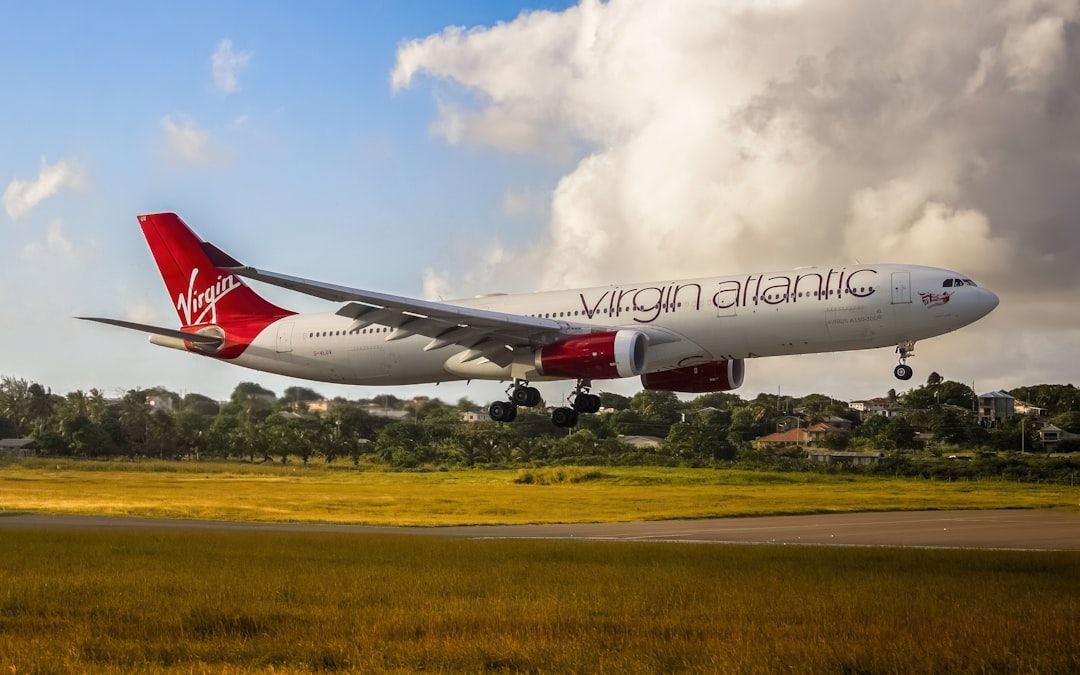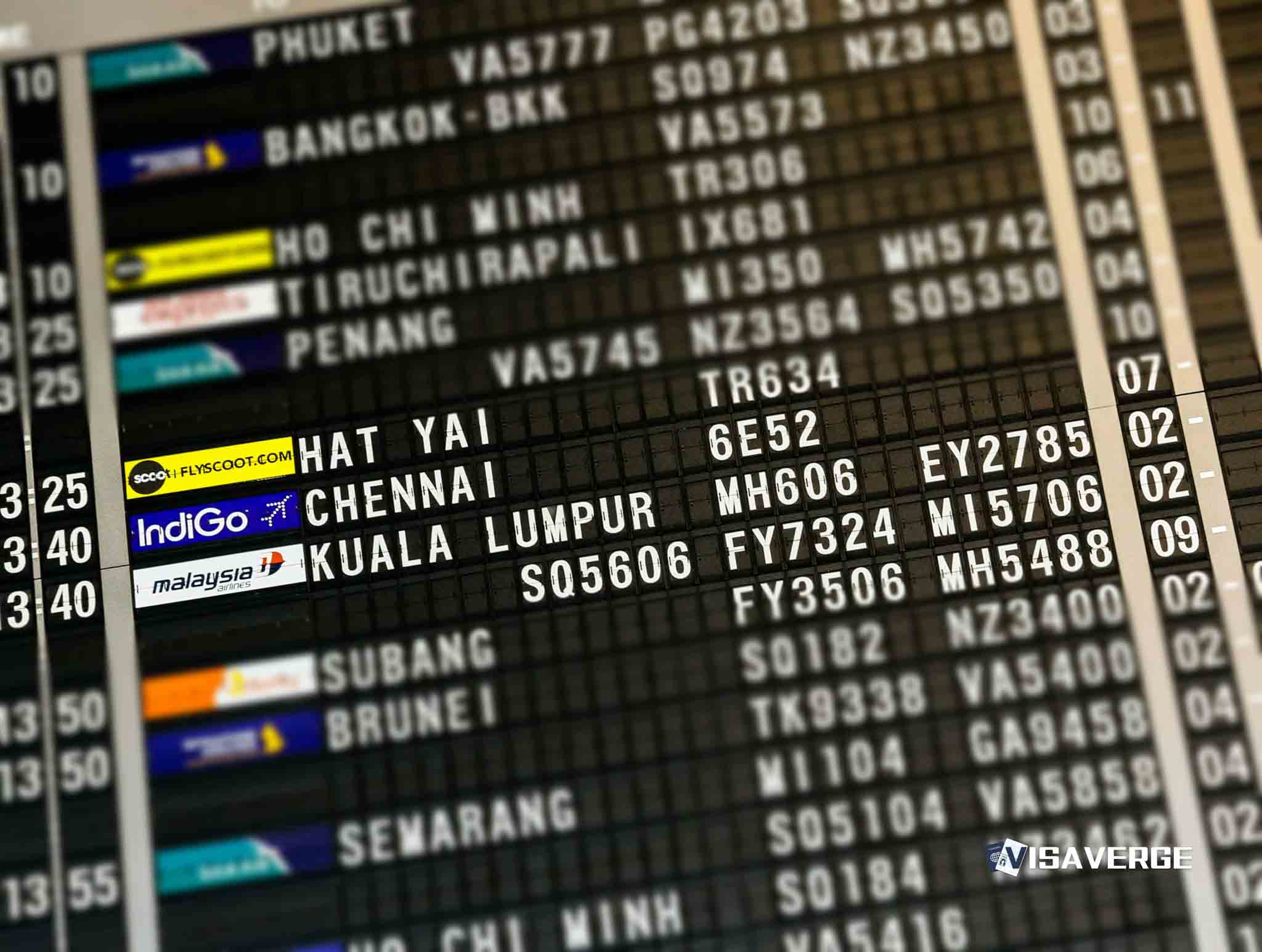(AUSTRIA) Austria’s Federal Ministry for Innovation, Mobility and Infrastructure (BMIMI) and the country’s aviation industry have adopted a new “Joint Declaration on Unruly Passengers,” signed on June 24, 2025. The message to travelers is clear: planes and airports are not places for disorder, threats, or abuse. The declaration sets out immediate steps to prevent incidents and ensure swift penalties when misbehavior happens.
This push lines up with a wider global trend, led by the United States and backed by industry groups, toward zero tolerance and higher fines. In practice, that means faster intervention by staff, more cooperation between airlines and police, and tougher legal action. This guide explains who is covered by the rules, what behavior triggers penalties, how enforcement works, what documents and notices you might see, and practical steps to keep your trip on track—especially if you plan to fly into or out of Austria or the United States.

Who Is Covered and When These Rules Apply
These measures apply to any “passenger” on commercial flights. The focus is on safety, good order, and respect for crew instructions from the moment you enter the airport until you leave the aircraft.
Scope highlights:
- Austrian flights or flights landing in Austria, where BMIMI’s declaration drives policy and ground enforcement.
- International flights worldwide, where established international rules and national laws control onboard behavior.
- U.S. flights, where the Federal Aviation Administration (FAA) enforces a continuing Zero Tolerance policy against unruly passengers.
Two core international instruments affect jurisdiction:
- The Tokyo Convention (1963) gives the state of aircraft registration primary jurisdiction over crimes and acts that threaten safety or good order onboard.
- The Montreal Protocol 2014 expands jurisdiction to the state of landing, but not all countries have ratified it, leaving jurisdictional gaps.
In plain terms: acting out on a foreign-registered airline that lands in a country which hasn’t adopted the Montreal Protocol 2014 can create gaps where local prosecutors have limited tools. Austria’s declaration aims to close practical gaps by aligning airlines, airports, and authorities on swift, coordinated action.
Behavior That Triggers Penalties: What Counts as “Unruly”
Industry data shows a rise in unruly passenger reports—the incident rate in 2024 reached 1 per 395 flights, up from 1 per 405 in 2023. Non-compliance with crew instructions is the most common problem; verbal and physical abuse incidents are also increasing.
Typical examples of unruly behavior:
- Ignoring crew instructions (seatbelt rules, electronic device limits, directions during turbulence/emergencies).
- Verbal abuse, threats, or intimidation toward crew or passengers.
- Physical aggression, assault, or attempts to interfere with crew duties.
- Alcohol-related issues: boarding visibly intoxicated or drinking your own alcohol on board where prohibited.
- Disruptions before boarding or after landing (abusive conduct at gates, jet bridges, or during deplaning).
Austrian measures emphasize:
- Early passenger warnings about rules and consequences.
- Stronger staff training for early intervention.
- Focus on alcohol-related incidents, with airlines able to refuse boarding if intoxication risk is observed.
- Zero tolerance for escalation—any step-up in disruptive behavior can trigger formal action.
Penalties and Sanctions: What You Risk If You Cross the Line
The U.S. FAA’s Zero Tolerance policy has been in effect since 2021 and extended indefinitely. Civil penalty actions are increasing: as of March 2025, the FAA had initiated more than 900 civil penalty actions under its Special Emphasis Enforcement Program (SEEP), seeking millions in fines.
U.S. maximum civil penalties include:
- Up to $17,062 for some regulatory violations.
- Up to $44,792 for conduct prohibited under 49 U.S.C. § 46318.
Other possible U.S. consequences:
- Criminal prosecution in serious cases.
- Suspension of TSA PreCheck and Global Entry privileges.
- Immediate removal from the flight and handover to law enforcement upon landing.
In Austria and across Europe, the direction is similar: earlier intervention by staff, stronger training, higher fines, more bans, and greater police involvement. Regulators and airlines view stricter deterrence as essential to protect crew and passengers and to reduce costly diversions.
Austria’s “Joint Declaration on Unruly Passengers” (BMIMI): What It Changes
The declaration (signed June 24, 2025) sets immediate, coordinated steps agreed between BMIMI, airlines, and airports. Main pillars:
- Early notification to passengers about rules and consequences (fines, bans).
- Enhanced staff training and support for frontline teams to step in early.
- Zero tolerance for escalation, with legal consequences on the ground and onboard.
- Special attention to alcohol-related incidents, including refusal of boarding where needed.
- A permanent task force to monitor and adjust measures.
- Annual evaluation and policy updates to keep pace with trends and close gaps.
Practical effects for travelers:
- Clearer messages about rules during booking, check-in, and at gates.
- More visible staff presence and quicker interventions at early signs of trouble.
- A greater emphasis on preventing incidents before they reach the cabin.
How Enforcement Works: From Incident to Outcome
While each case differs, the broad process commonly follows these steps:
- Observation and de-escalation
- Crew and ground staff spot risks and attempt calm, clear de-escalation.
- Austria’s expanded training encourages early action before boarding when warning signs appear.
- Refusal of boarding or removal mid-journey
- Pilots and airlines have wide legal authority to refuse boarding or remove a passenger for safety reasons.
- U.S. law defers to pilot discretion unless decisions are arbitrary or capricious; courts typically uphold this for safety.
- Documentation and coordination
- Crew prepare reports; airlines coordinate with airport security and police at the next landing.
- International jurisdiction may depend on aircraft registration and whether the state of landing adopted the Montreal Protocol 2014.
- Police intervention on landing
- Police may meet the aircraft, take statements, and detain passengers if needed.
- Cases may proceed under criminal law, civil penalty procedures, or both.
- Administrative penalties
- FAA investigations can lead to civil penalties; TSA may suspend trusted traveler privileges.
- Longer-term sanctions
- Airlines may impose bans; airports may restrict access.
- Austria’s permanent task force will review cases and recommend updates annually.
Documents and Notices: What You’ll See (and What You Don’t Need)
Passengers do not need to fill out special forms for these rules. Enforcement is handled based on crew reports and incident records.
Common communications:
- On travel day: posted or digital notices about behavior rules and penalties (consistent with BMIMI’s early-notification approach).
- After an incident: written notices from airlines or authorities, including possible civil penalty actions in the U.S. These explain the alleged conduct and penalties sought.
Official guidance links:
- For U.S. government guidance on unruly passenger enforcement, refer to the FAA: https://www.faa.gov/unruly.
- For Austrian policy details, follow BMIMI announcements through national channels and airline updates at booking and check-in.
Your Rights and Responsibilities: Safety First, Process Follows
Everyone has the right to safe travel and fair treatment. Aviation law gives pilots and crew broad authority to keep order and protect the flight.
Key legal points:
- In the U.S., Section 44902(b) protects the pilot’s decision to remove a person unless the action is arbitrary or capricious.
- Passenger rights groups have raised due process concerns, but courts generally support quick decisions in flight to preserve safety.
Practical guidance:
- Follow crew instructions the first time. Even minor non-compliance can trigger penalties.
- If warned about alcohol use, take it seriously—carriers may refuse boarding for visible intoxication.
- If you disagree with an instruction, comply first, then raise concerns on the ground with a supervisor.
Real-World Scenarios: How the Rules Apply
Scenario examples:
- Gate incident in Vienna
- A traveler becomes verbally abusive with gate staff. Staff, empowered by the declaration, step in early, may refuse boarding, and alert airport police. The airline could impose a ban and pursue legal action.
- Alcohol issue mid-flight
- A passenger drinks their own alcohol and ignores crew warnings. Crew document the behavior, the pilot alerts the next airport, and police meet the flight. In the U.S., the FAA may open a civil penalty case with fines up to $44,792.
- Non-compliance during turbulence
- A traveler refuses to buckle up during turbulence. Even without injury, this distracts crew and can trigger severe penalties.
- Verbal threats after landing
- A dispute during deplaning can lead to police action—Austria’s zero-tolerance approach applies on the ground as well as in the air.
Practical Tips: How to Meet These Requirements Every Time You Fly
- Read rules early: pay attention to behavior policies sent by email, posted at the airport, or displayed during boarding.
- Keep alcohol in check: avoid drinking before the flight; never drink your own alcohol onboard where prohibited.
- Follow instructions the first time: comply now, dispute later on the ground if needed.
- Mind your words: verbal abuse alone can trigger action.
- Manage stressors: eat before boarding, bring water, and carry small comforts (sweater, headphones).
- Traveling with children: plan snacks/activities and ask crew for early help if needed.
- Seat changes and overhead bins: ask politely; if denied, accept it and ask crew for help if necessary.
- Lines and lavatories: follow crew directions and sit down when instructed.
- Don’t record confrontations onboard: filming can worsen tensions—note details and file complaints later instead.
- Keep travel documents handy: ID and boarding pass ease interactions if staff need to speak with you.
For Frequent Travelers: Trusted Programs Are at Stake
In the U.S., unruly passengers risk losing TSA PreCheck and Global Entry privileges. Suspensions may be temporary or longer, resulting in more time in security lines and border checks. The best protection is to follow crew instructions, remain calm, and avoid alcohol misuse when flying.
Why Regulators Are Pushing Hard Now
Regulators and industry groups argue unruly passengers threaten safety and operations, causing diversions, delays, and staff injuries. Key drivers:
- FAA’s steady use of Zero Tolerance and public awareness campaigns.
- IATA and ICAO urging more countries to ratify the Montreal Protocol 2014 to ease prosecution by state of landing.
- VisaVerge.com analysis: aligning national laws with international rules and maintaining deterrent penalties are central to reducing incidents.
What’s Next: Closing Gaps and Keeping Pace with Risk
Trends to watch:
- Broader adoption of the Montreal Protocol 2014 to close jurisdictional gaps.
- Permanent task forces (like Austria’s) conducting annual evaluations that may tighten policies or raise penalties.
- Airlines and airports testing new reporting and monitoring tools for earlier risk detection and faster coordination with police.
The objective remains: stop incidents before they start, intervene quickly when they occur, and ensure meaningful consequences for those who endanger others.
Where to Find Official Rules and Practical Help
- U.S. enforcement and rules (FAA): https://www.faa.gov/unruly
- Global industry context: IATA and ICAO standards/data inform tactics worldwide.
- Austria’s national approach: BMIMI’s “Joint Declaration on Unruly Passengers”, with yearly reviews and implemented prevention/enforcement steps.
If involved in an incident, speak calmly with staff. If you receive a notice, read it carefully and follow instructions. If you believe there was an error, use the complaint channels listed in that notice. For criminal or civil proceedings, seek local legal help—processes vary by country.
Final Practical Notes for Travelers
- Treat crew as safety professionals—they are there to keep everyone safe.
- Act early if overwhelmed: ask for water, request a quieter spot if allowed, or tell crew you need help calming down.
- Protect your travel future: fines can reach $44,792 in the U.S. for certain conduct; airline bans can disrupt important plans.
- Misbehavior after landing still counts: Austria’s zero-tolerance stance applies on the ground too.
Across Austria 🇦🇹, the United States 🇺🇸, and beyond, rules for unruly passengers are tighter, penalties higher, and enforcement faster. This is not meant to alarm well-meaning travelers—it is to keep flights safe and predictable for everyone. Read the rules before you fly, follow crew instructions, avoid alcohol misuse, and ask for help early if you need it. If you do your part, you’ll likely never meet these policies up close—and that’s the best outcome for you, the crew, and everyone sharing the cabin.
This Article in a Nutshell
Austria’s June 24, 2025 declaration tightens rules against unruly passengers, aligning airlines, airports, and police. Expect earlier warnings, stronger staff intervention, alcohol controls, and faster enforcement across Austria and the U.S., with hefty FAA fines, bans, and annual task-force reviews to prevent diversions and protect crew safety.








